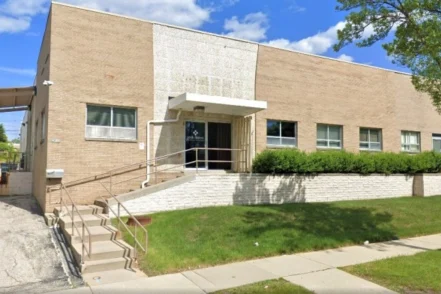Interventions for Addiction Treatment: What to Know Before Holding One
According to the National Institute of Health’s National Library of Medicine, interventions refer to “activities that are taken with the objective of improving human health by preventing disease, by curing or reducing the severity or duration of an existing disease, or by restoring function lost through disease or injury.” There are preventive interventions (ex. vaccines), nutritional interventions (ex: adding vitamins to your diet), behavioral interventions (ex: quitting smoking), and medical interventions (taking a drug to control a disease).

What is Intervention for Substance Use Disorder (SUD)?
When used to address substance use disorder, the term “intervention” refers to steps that are taken to reduce the use of illicit substances so that health can be restored. Medication-assisted treatment (MAT), psychosocial interventions, such as therapy or counseling, and behavioral interventions, such as implementing strategies that reward positive behavior and withhold rewards when undesired behavior is exhibited–all these are examples of interventions for substance use disorder.
But the term intervention in the context of substance use disorder also has a different, very distinct meaning: it is the name for a particular, strategic activity that is undertaken by a substance user’s loved ones (family members, close friends, etc.) whereby they confront the substance user and attempt to motivate them to seek addiction treatment.
Goals of an Intervention
A SUD intervention has three main goals: 1) to bring to the substance user’s awareness the severity of the impact of their substance use on their loved ones and on their relationships with the substance user; 2) to get the substance user to agree that their substance use is a problem and it needs to be immediately addressed; and 3) to create an action plan for addressing the substance use, often involving immediate entry into a drug or alcohol rehab program.

Types of Interventions for Drug Use
There are two main types of interventions used with people who have substance use disorders. The Johnson Intervention model is the most recognized. It employs surprise and is confrontational. It is best used with people who do not see themselves as having a substance use problem and do not realize how severely their use is affecting the people who care about them most. The CRAFT (Community Reinforcement and Family Training) intervention model is based more on positive reinforcement and encouragement, rather than confrontation, and involves teaching family members how to communicate with their loved one in ways that help them come to their own conclusion that they should address their substance use.
The steps in the Johnson and the CRAFT models of intervention are as follows:
Johnson Model
A Johnson model intervention often involves family members having two meetings with a professional interventionist, a person who is trained in both addiction education and in the process of staging an intervention.
During the first meeting, family members gather to discuss their concerns about their loved one who has substance abuse issues. The interventionist educates family members about the loved one’s addiction and explains the roles that each family member will have during the actual intervention, which will happen during the second meeting.
Family members are instructed to be both confrontational and resolute in setting boundaries, while also expressing their love and concern for the substance user. To assist in this process, each family member writes a letter to the substance user, detailing the impact that the substance use has had on them, and the consequences they will impose if the substance user does not seek treatment (ex: loss of contact with the family member).
A day is scheduled for family members, along with the interventionist, to hold a surprise meeting with the substance user, during which the family reads aloud their letters, and encourages the substance user to agree to enter treatment (sometimes leaving immediately with the interventionist to go to a pre-arranged treatment program).
CRAFT Model
The CRAFT model of intervention is a longer process than the Johnson Intervention. It often involves 10-14 one-hour sessions with a CRAFT-trained therapist for the family members, who are educated on ways to help the substance user recognize that they need to seek help.
Family members are taught positive communication skills, and how to address their loved one’s substance use without direct confrontation or coercion. It teaches family members ways to reward the user’s positive behaviors and to withdraw positive reinforcement when unhealthy behavior, such as substance use, is exhibited. This model also teaches family members how to understand the user’s triggers, and how to spot potentially dangerous behavior, as well as how to care for themselves.

After the family members have had about five sessions with the therapist, the substance user is also invited into treatment, sometimes with one-on-one sessions, and sometimes with family sessions in which the family members and the substance user role play their communication strategies. Most CRAFT intervention programs last about three months.
Pros and Cons of Johnson and CRAFT Interventions
The Johnson Intervention is an “ambush” style of intervention, using a highly emotional and confrontational meeting to demonstrate family members’ disappointment with the substance-using activity and their resolve to cease accepting it. While this can be a wake-up call to the substance user, making them realize that their continued substance use will jeopardize their relationships with those closest to them, and it may motivate them to get help, it can alternately result in the substance user feeling angry and coerced into doing something against their will. So, although the Johnson method is widely used, it has a risk of having the opposite effect than the one intended and may result in the substance user abandoning family interactions, in order to continue using without resistance from their loved ones.
The CRAFT program intervention takes longer to complete than the Johnson Intervention, and it has less leverage in the sense that there are no demands and ultimatums presented. It appeals to the logic of the substance user to see the value in replacing negative behaviors with positive ones, and it relies on the user’s willingness to engage in therapy with family members. The Craft program intervention model is best used with people who have an internal desire to abstain from substance use and may just need encouragement and support to help them do so.
Effectiveness of Addiction Interventions and What Comes After
Both types of interventions for substance use issues have demonstrated effectiveness in getting the substance user into treatment, and both result in a greater likelihood that the client will complete their treatment program, than those who enter treatment without having had an intervention by family members.4 However, since addiction is a long-term disease, many substance users who enter rehab treatment following either type of intervention do relapse at some point afterward. One study concluded that people who had experienced a Johnson intervention were more likely to relapse than those who experienced other types of interventions, perhaps because they were not completely ready to enter treatment and did so mostly because of pressure from loved ones. Also, if they felt ambushed and
attacked, the substance user might be more likely in the future to hide their substance use from family members, resulting in a greater likelihood of advanced disease before they decide to enter treatment again.
After an intervention, a person struggling with substance misuse (or a substance use disorder, SUD) may need various levels of treatment and support depending on their individual needs. These can include:
- Medical Detox: A medically supervised program to safely manage withdrawal symptoms.
- Inpatient Treatment: A residential program where the person lives at the treatment facility and receives 24/7 care.
- Partial Hospitalization Programs (PHP): Intensive treatment program during the day, but allows the person to return home at night.
- Intensive Outpatient Programs (IOP): Provides structured therapy and support several times a week, but allows for more flexibility than PHP.
- Outpatient Treatment: Provides individual and/or group therapy on a regular basis, while the person lives at home. This treatment may include cognitive behavioral therapy (CBT), a form of therapy that can help people identify and change negative patterns of thought and behavior related to substance use.
Developing a Treatment Plan:
In conjunction with a healthcare professional, a personalized treatment plan will be created. This plan may incorporate different treatment options based on the severity of the SUD, any co-occurring mental health conditions, and the individual’s risk factors for relapse. The National Institute on Drug Abuse (NIDA), part of the National Institutes of Health (NIH) in the United States, is a valuable resource for information on SUD and treatment options.
Support Systems:
Treatment doesn’t stop after the initial program. Support groups, with people who understand the challenges of recovery, can be a powerful tool. Aftercare programs provide ongoing support to help prevent relapse. Transitional housing can also be beneficial, offering a supportive living environment as someone transitions back to independent living.
Seeking Help:
If you or someone you know is struggling with substance use disorder, it’s important to seek treatment. There is no shame in asking for help. The Johnson model (also known as the Johnson Intervention) can be a starting point for a loved one to confront the issue and encourage them to seek professional help. However, it’s important to note that interventions should be conducted with the guidance of a qualified professional.
More Treatment Options

Acamprosate
Acamprosate for Alcoholism: How It Works, Side Effects, and Rehab Use 29 million Americans struggle with alcohol use disorder (AUD), the …

Suboxone
Suboxone — How It Works and Its Role In Addiction Recovery According to statistics from the Centers for Disease Control …

Buprenorphine
How Buprenorphine Helps Treat Opioid Addiction The thought of recovery may seem like an impossible challenge for individuals struggling with …
Top National Treatment Centers
-
 Florida
Florida1 Solution Detox – CLOSED
2901 Broadway Ave West Palm Beach, Florida 33407
Treatment Programs
- Alcohol Rehab
- Opioid Addiction
- Drug Rehab
- +0
-
 California
California10 Acre Ranch
5953 Grand Avenue Riverside, California 92504
Treatment Programs
- Alcohol Rehab
- Dual Diagnosis
- Opioid Addiction
- +4
-
 Wisconsin
Wisconsin10th Street Comprehensive Treatment Center
4800 South 10th Street Milwaukee, Wisconsin 53221
Treatment Programs
- Alcohol Rehab
- Opioid Addiction
- Drug Rehab
- +4
-
 Oklahoma
Oklahoma12 and 12
6333 East Skelly Drive Tulsa, Oklahoma 74135
Treatment Programs
- Alcohol Rehab
- Dual Diagnosis
- Opioid Addiction
- +4